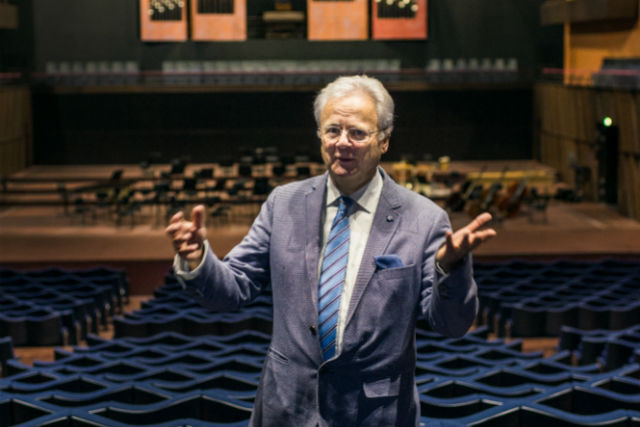It is true that in many cases, Danes come to Luxembourg for a few years to work in the financial sector and then return home. However, there are many who have planted firm roots here.
Martin Elmquist, conductor of the Luxembourg Philharmonia orchestra, is one of them. After training at the Royal Danish Academy of Music as a violinist and conductor, he spent eight years with the Rome Opera Orchestra before moving to Luxembourg in January 1991.
“My sister had been living in Luxembourg since 1973 and convinced me that there were many opportunities for someone like me. I began working as a violin teacher at the Conservatoire du Nord in Ettelbruck before being approached in 1995 to become the conductor of the Philharmonia,” Elmquist explains.
“Initially, there were just 30 of us, but over the years, we have grown to 90 musicians, both keen amateurs and retired professionals. In 2014, we celebrated our 35th anniversary and last year, we toured Italy for the first time.”
Whist Luxembourg is not Rome, Elmquist believes that, musically, Luxembourg has made huge headway. “Obviously, the building of the Philharmonie has put Luxembourg firmly on the map. Now, we are able to attract some of the world’s most renowned musicians and orchestras,” he explains. “In addition, we have conservatoires in the city and in Ettelbruck providing ‘would be’ students with the ability to rent instruments. It’s all very positive.”
Founding Art Rooms
Stine Bülow has made her career as a goldsmith, but interestingly enough, she also has a musical streak, having studied classical clarinet in the past. “I loved the clarinet, but I am a people person and it was too much of an isolated career for me,” she says with a smile.
Initially from Copenhagen, Bülow studied as a goldsmith in Funen and then in Jutland. “It’s a very specific and traditional training that has not changed over the years,” she explains. “My grandfather was a goldsmith and I use his tools every day when I’m working.”
She moved to Luxembourg in 2009 leaving behind her an established business and reputation. “It was a big decision to make and a little frightening, but I just loved the international atmosphere and really wanted to build something here in Luxembourg.”
For several years, Bülow continued to sell her work through other designers and helped found Art Rooms, a concept space for creatives located on avenue de la Liberté, with artist Ben Carter.

Photo: Mike Zenari. “If you want to be an entrepreneur in Luxembourg, you need to be outgoing and never give up,” says Goldsmith Stine Bülow
It wasn’t until she had the opportunity to rent a space at the now-defunct Ben & Pepper that Bülow began “showing” her work to the local market. “Being able to show my work and meet people in person really made a big difference,” she says.
“My creations are a form of expression, so having a place to both create and showcase my work was ideal.” In addition, Bülow’s designs were sold in the Mudam shop, a collaboration which was to lead to a wonderful opportunity.
“Someone who worked at the ministry of foreign affairs saw my fox collection and thought the cufflinks and bracelets would make an ideal gift for dignitaries and other officials visiting Luxembourg,” explains Stine.
The fox design, based on national literary treasure “Renert” by Michel Rodange, proved to be an elegant way to promote one of Luxembourg’s most prolific writers and poets.
Today, Bülow has her own shop and atelier located in the Carré Bonn centre just off place d’Armes and is happy to say that the majority of her clients are local.
“If you want to be an entrepreneur in Luxembourg, you need to be outgoing and never give up,” she says. “It’s not easy to open a business in Luxembourg when you don’t have a lot of money,” says Bülow. “You really have to build your own network and integrate as much as possible. Very few of my friends are Danes.”
Elmquist agrees. “You have to open your door to Luxembourg. Attend local events and meet local people through clubs or organisations. Every commune has a local centre where plenty of activities are happening.”
Neither Elmquist or Bülow have intentions to return to Denmark in the foreseeable future. They are just as happy, if not more so, here in Luxembourg.
This article was first published in the Winter 2019 edition of Delano Magazine.
